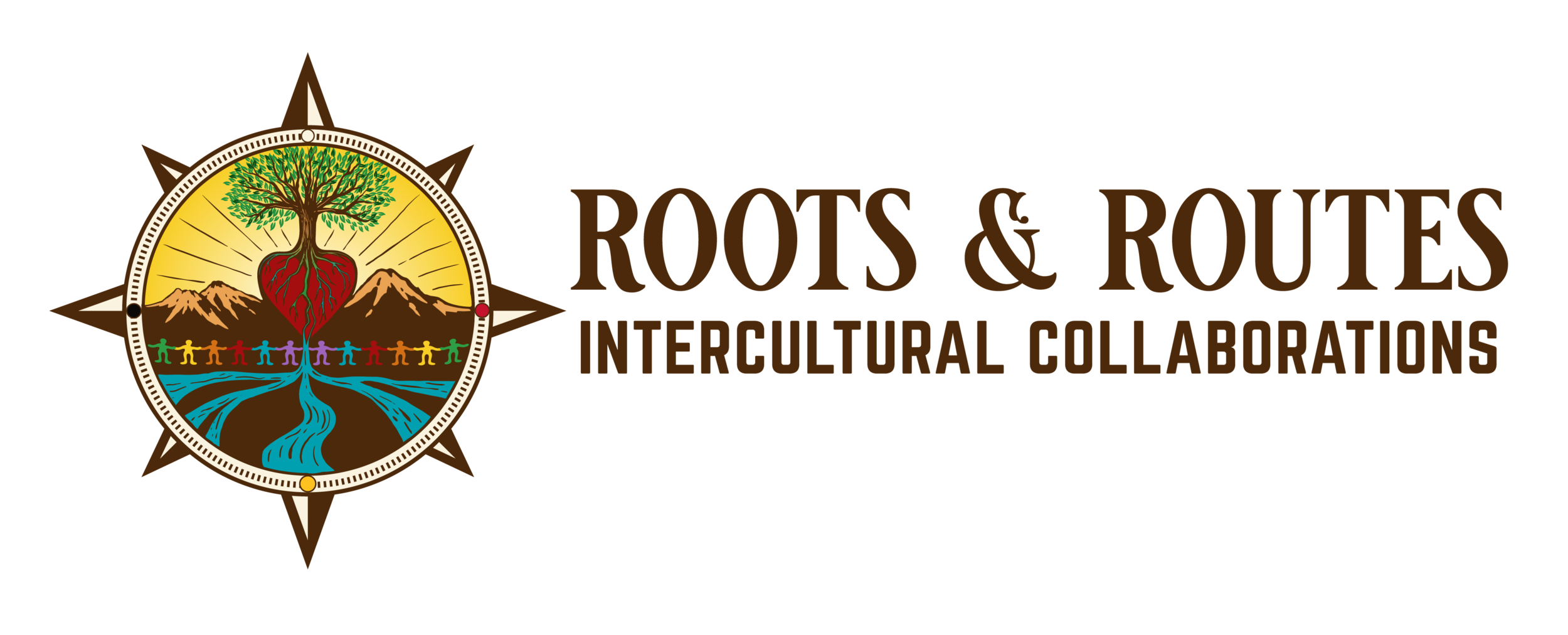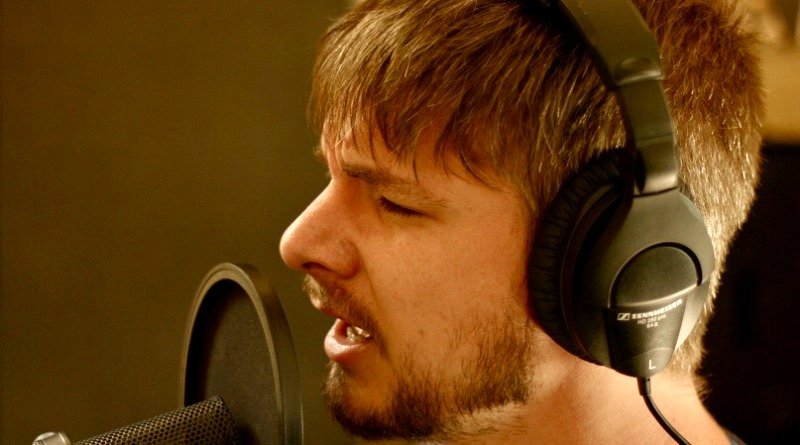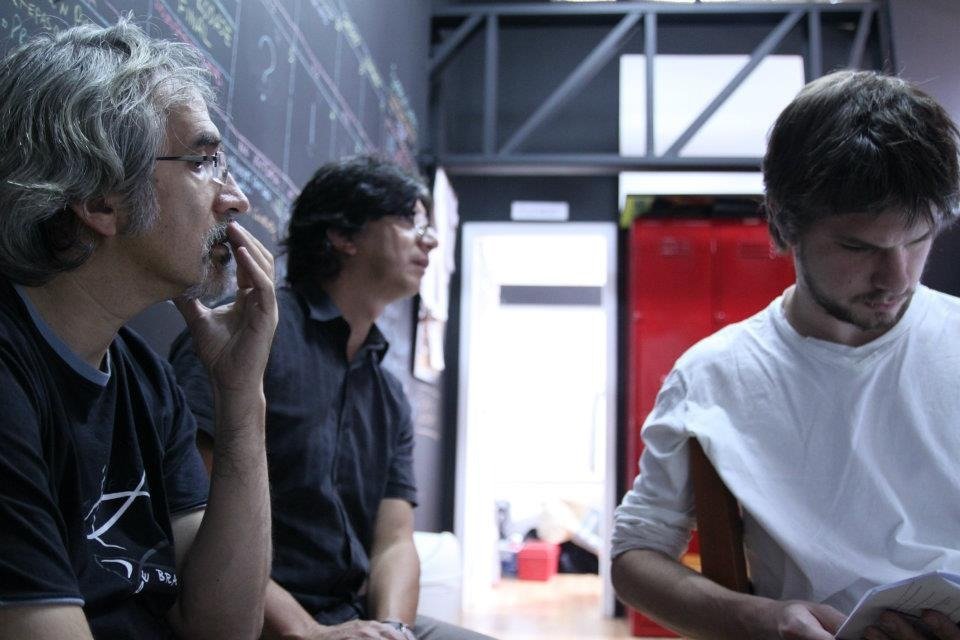Revealing the Full Picture: Sound Designer & Film Editor Sergio Venturini Re-stories through Film
“What I want to say is that film, documentary films, have the chance to say things differently than mainstream media… It's not only about what is said by them, but it's also about the way it is told. The way we tell things changes the way we think about them”
—Sergio Venturini
In an age where media consumption is at an all time high, the use of artistic media as a storytelling medium can help share narratives in a way that is emotionally compelling and impactful on audiences. In addition, sharing the narratives of others through film can be a useful tool in raising awareness and sparking change. When we highlight the voices of those involved, and amplify their lesser heard stories, film can become a truly captivating method of sharing experiences.
On February 5th, 2023, members of the Youth Visionary Collective (YVC) had the privilege of hosting Argentinian Film Editor and Sound Designer Sergio Venturini for a discussion about his experience in and passion for the film industry. Sergio believes that film's unique ability to capture its audience makes it a powerful tool for re-storying the past and present of South America. Sergio’s love for his work was inspiring and demonstrates the importance of using our passions to spark change and effective communication. During our conversation, Sergio described his path towards filmmaking, the challenges and triumphs along the way, along with some of his recent works. The conversation was infused with Sergio’s passion for storytelling and vision for our world that he hopes to help make better through his work.
Editing the film DreamTown by Betty Bastidas.
Sergio focuses primarily on documentary films that tell the real stories of people and places, which makes his projects even more intriguing. With films such as Not a Bedtime Story (2023) and El Encanto de la Mosca (2021), Sergio has demonstrated how influential and attention-grabbing film and audiovisual arts can be. His works utilize a broad array of storytelling methods that start influential conversations about environmental and social injustices. He has highlighted the use of storytelling to create conversation surrounding controversial subjects and dive deeper into their truths. By engaging in this type of creative platform he has been able to create beautiful works of art that are both powerful and authentic to those involved.
Sergio always knew he wanted to engage in a career that allowed him to create, but his path to filmmaking was actually an accident. Growing up, Sergio was first drawn to music. While still living in Argentina, he realized that his career in music would not be sufficient in order to have an economic means of survival, so he turned to film. However, he didn’t give up on his passion for the arts all together and now does freelance work as a sound designer and editor for films, in particular documentaries. Sergio described how music and film editing share a lot of similarities, as both require structure, and each has rhythm. He described art as “a life of sacrifice,” further demonstrating the sort of passion needed to carry out art-based professions.
Sergio explained that as a freelance worker in a creative industry he has faced a lot of uncertainty in his career. Unsure about what project will come across his desk next, let alone when, Sergio has to have hope and flexibility to navigate these uncertainties. Through all this, Sergio’s passion for filmmaking and his work has helped him to navigate this uncertainty and find joy in a career that doesn't align with popular, capitalistic definitions of success. At the end of the day, Sergio is happy as a film editor and has contributed to many emotionally moving films.
During our discussion, Sergio described a few more of the works that he edited and the significance of their narratives. These included La Muerte de Jaime Roldos (2013), Not a Bedtime Story (2023), and El Encanto de la Mosca (2021). Here are the descriptions of each film:
About the film, La Muerte de Jaime Roldos (2013)
La Muerte de Jaime Roldos (watch the trailer here) explores the tragic death of President Jaime Roldos, the former President of Ecuador, who died in a plane crash along with his wife in 1981. In this film the mainstream media’s portrayal of the incident as merely an accident and tragedy are challenged. As new information is declassified and investigation continues, the underlying manipulation, conspiracy, and political motivations surrounding the Roldos family is unveiled. It is by learning more about Roldos' death that his true life and legacy is revealed.
About the film, Not a Bedtime Story (2023)
Not a Bedtime Story (watch the trailer here) discusses the stories of director Lila Penagos’ father, who previously served in a guerilla army. Growing up, her father would tell Pengagos innocent versions of the harsh realities which he faced. Penagos shares fond memories of these stories with her father, but as she gets older she encourages him to reveal the unfiltered truth. The film uses childlike modes of storytelling, such as shadow puppetry, to display the child-friendly versions of the stories she was told to contrast the harsh truth of the real stories. Through these methods the film demonstrates how we often don't know the genuine experiences of those around us, and displays how as we grow up we learn more and more of these honest truths.
About the film, El Encanto de la Mosca (2021)
El Encanto de la Mosca (watch the trailer here) tells the story of Puerto Madryn, Argentina, a popular tourist site for whale watching on the coast of northern Patagonia. Residents of the city welcomed the investment of Aluars, the only aluminum smelter in Argentina and among the largest in South America. Aluars’ investment was seen as bringing progress to the city. This positive depiction of the smelter has continued even after it has become clear that the carcinogens produced as byproducts are spreading to the community. Thousands of residents have died of cancer since the smelters opened but this health crisis has been masked by the promise of progress Aluars brought to the city and to Argentina. A social pact has been made, residents are to accept the growing health risk, as the progress made in the city because of this investment is too valuable—more valuable than their lives. This pact along with the initial excitement surrounding the plant has led to popular depictions of the Aluars as being a bright beacon of progress for Puerto Madryn leaving the stories of disease hidden in the shadows. This film pulls this hushed and hidden story to the spotlight.
Sergio has worked on films that contribute to what we at Roots & Routes call re-storying the world. Sergio’s passion for challenging the story told by mainstream media and using film as a method to open viewers eyes beyond popular narratives is a passion Roots & Routes shares and admires. Roots & Routes also admires Sergio’s intentional choice of film for telling authentic stories, as we believe how social change comes about is just as important as the social change itself.
We are especially excited to share that Sergio is the film editor of our upcoming documentary Together for Water: Defending the Chocó (working title), read more and watch the teaser here, and we are grateful for his contributions to the project! The film emphasizes the power of storytelling through film as a way of promoting conservation efforts and changing how we understand certain events, people, and places.
This strategy can also be seen in Sergio’s previously mentioned projects that have been successful at changing the way we approach and think about these stories. For example, La Muerte De Jaime Roldos raises questions about the death of the former President of Ecuador, that otherwise would not even be considered. Additionally, El Encanto de la Mosca calls attention to the unspoken social pact that has led to Puerto Madryn’s corruption. Sergio’s projects demonstrate how film is especially good at accomplishing this goal, as it is easily spread, and captures our attention in ways that normal conversation rarely does.
Sergio and Victor Arregui, Director of the film Fuera de Juego, which was his first film that participated in the most important festivals in the world. Sergio edited Arregui’s next film, El Facilitador.
Sergio’s story also demonstrates the importance of passion, and how the love that a person has for what they do, in this case create, can further increase the impact that that product has. Sergio sacrificed the stability of other career paths to follow his passion for filmmaking. Viewers of Sergio’s work are inspired by his passion and ability to translate stories into captivating media. It is obvious that his films spark ideas and conversations in powerful ways that social media and other forms of expression cannot.
Sergio’s films allow viewers to lose themselves in the story and leave them with a deeper understanding of and more empathy for the world around them. There are a number of aspects in storytelling that play a part. The medium is important for commanding attention, but the way a story is told, and who is telling it, can be crucial when promoting change. By focusing on telling the whole story, Sergio’s films go beyond the simple narrative perpetuated by mass media and instead tell the authentic stories of the people behind the lens.
So now we ask you, how has artistic media impacted the way you see the world? What is a story that you think needs re-storying?






